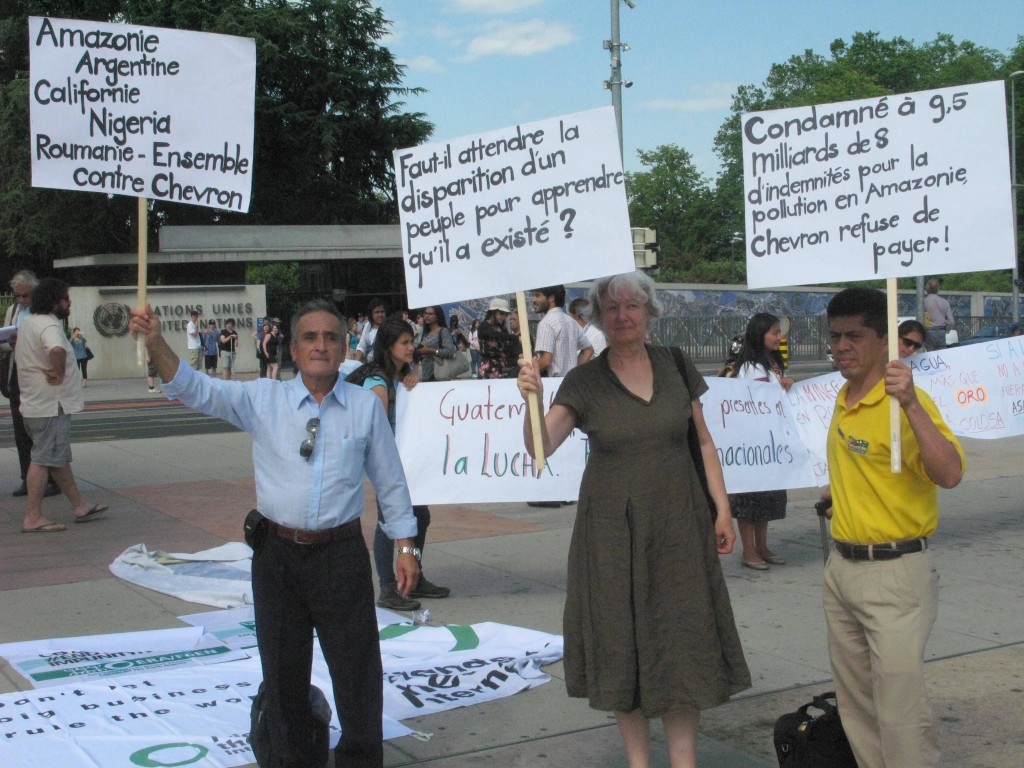 An anti-TNC protest
An anti-TNC protest
The anthropology of human rights has devoted increasing attention to how diverse groups and societies interpret and implement (or not) international legal norms. The pioneering work of Sally Merry and her collaborators on how global women’s rights norms are enacted in local contexts saw this as a “vernacularization” process.1 Numerous scholars have studied the ways civil society organizations build alliances across boundaries of language, nation, ethnicity, class, and religion; construct shared imaginaries; and take rights claims to international governance venues in hopes of legislating new global norms. Few, however, have explicitly analyzed this in terms of what we might term “vernacularization in reverse.”2 To be concrete, reverse vernacularization involves the development of shared understandings and demands between, say, residents of a community in the Philippines affected by the mining giant Glencore and their counterparts near Glencore mines in Colombia, Peru, Zambia, and the Democratic Republic of Congo. Or, to take another example, small farmers in western Europe who seek to overturn prohibitions on saving and exchanging seeds and those in Brazil who face similar restrictions.